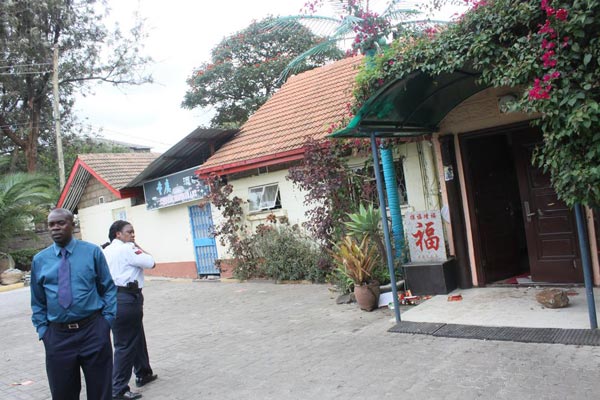|
|||||||||
|
By:
By RASNA WARAH | |||||||||
| Posted:
Mar,29-2015 16:02:07
| |||||||||
|
The recent story in the news about aChinese restaurant in Nairobi not allowing in African customers after 5pm has caused a sensation on social media and prompted many foreigners to ask how Kenyans can allow outsiders to discriminate against them on Kenyan soil. A BBC listener in Uganda said that if the Chinese restaurant owners had discriminated against black Ugandans in Kampala, they would most certainly have been deported and even beaten up. The restaurant has acknowledged that it made a mistake and the relevant authorities are looking into whether the owners should be charged with discrimination and denied a licence to operate in the country. I am wondering why this particular incident caused so much furore in a country where racial segregation and racism have been entrenched by more than half a century of British colonialism and accepted as part of the status quo by post-colonial governments. In Kenya it is perfectly normal to have Asian-dominated schools or Europeans-only clubs. In many restaurants, white people get better treatment from waiters than black people. Some Kenyans are so mentally colonised that they will pay exorbitant fees to elite schools so that their children can be taught by white teachers. They will even pull a child out of a school because it has “too many Africans” who will “contaminate” their children’s British or American accents. This self-loathing, combined with a tendency towards ethnic bigotry, makes Kenya a unique case study in identity politics. 'ART OLYMPICS' This slave mentality is also evident in the way the government handles artists and cultural ambassadors. Apparently five Chinese artists, one Italian, and only one Kenyan are representing Kenya at the 56th Venice Biennale 2015, also known as the “Art Olympics”, from May to November. No one quite knows how this happened despite loud protests by Kenyans in the past, such as cultural commentator Joyce Nyairo, who in 2013 asked why the long-term Malindi resident Armando Tanzini, eight Chinese, one Italo-Brazilian, and only two Kenyan artists represented the country at the art expo’s Kenya Pavilion. Some Kenyans have taken to social media to protest the lack of Kenyan representation at the 2015 expo and have even signed a petition denouncing Kenya’s “fraudulent representation” at the event. Writing in the Africa is a Country blog, SkepticAfro suggested that the event had been hijacked by Italian artists resident in Kenya, who are virtually unknown in Kenyan cultural and artistic circles. The Kenya Pavilion at the Venice Biennale was apparently commissioned by an Italian woman called Paola Poponi and curated by another Italian called Sandro Orlandi. It is quite obvious that both are completely out of touch with the Kenyan art scene, which has produced several well-known and respected artists who have gained national and international fame. As the blogger rightly points out, the root cause of this problem is not the Italians or the Chinese, who have just taken advantage of a vacuum left by those who should ideally be in charge of deciding who represents Kenya at such events; the problem is that the powers that be, for example, the ministry in charge of the arts and the organisers, simply do not care enough about Kenya’s cultural voice. On the contrary, they have allowed foreigners to appropriate the Kenyan artistic space; these foreigners are now masquerading as the “face of Kenya” at international events. Feeble attempts by the Sports and Culture Cabinet secretary to explain Kenyans’ non-representation at the expo have not convinced Kenyan artists. Nor have Kenyans been told why the Kenyan contingent has so many Chinese. This encroaching Chinese “colonisation” of Kenyan spaces should not be left unchecked. In its March edition, the New African noted that the Chinese government needs to rigorously regulate the activities of some of its companies and nationals that operate in Africa as not doing so could seriously impact Sino-African relations. In many African countries, small- and medium-size traders and businesses are complaining that Chinese companies and entrepreneurs are driving them out of business, which could lead to xenophobic attacks. Add to this discriminatory practices and racism, and you have a toxic mix that could fuel a rebellion against the Chinese in Africa. rasna.warah@gmail.com | |||||||||
|
Source:
| |||||||||
|
||||||||||||||||||||||||||||||||||||||||||||||||||||||||||||||||||||||||||||||||||||||||||||||||||||||||||||||
|
||||||||||||||||||||||||||||||||||||||||||||||||||||||||||||||||||||||||||||||||||||||||||||||||||||||||||||||


.jpg)




